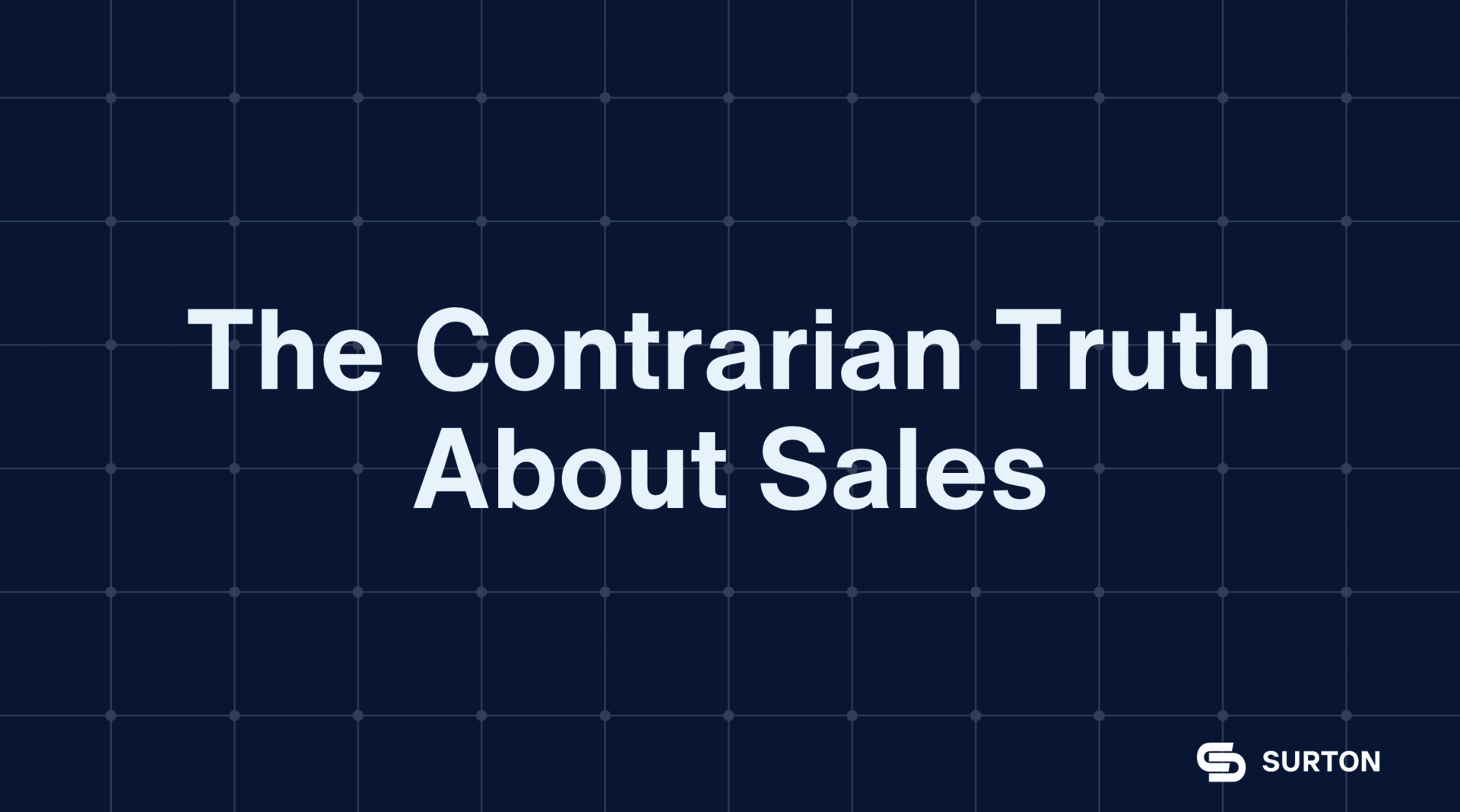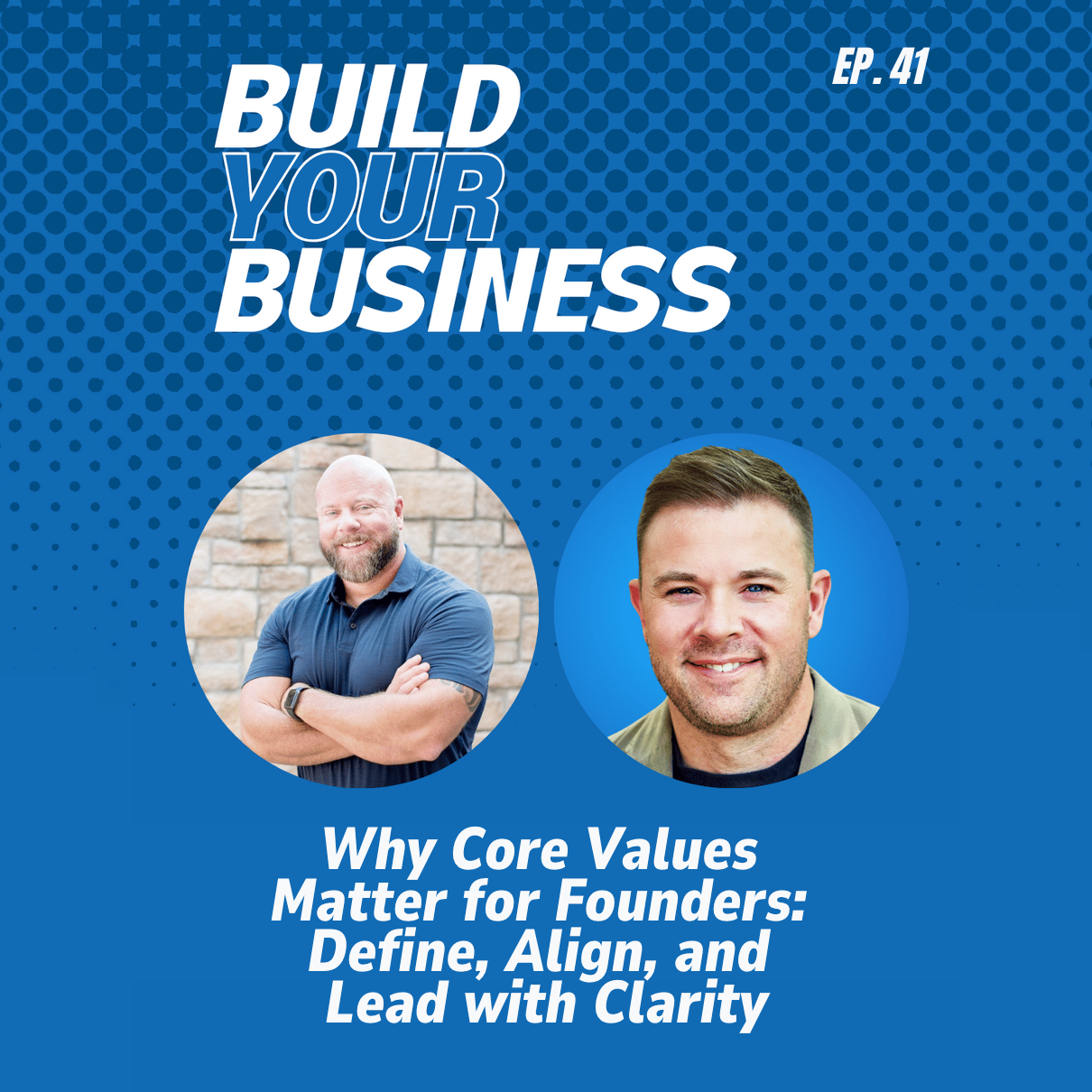- The Blueprint
- Posts
- How I Win Deals by Leading with "No"
How I Win Deals by Leading with "No"
Most founders hate selling. Here's a better way.
Hey!
Chris here. Welcome to Blueprint—the newsletter to help you build a winning engineering team.
Last week, a prospect reached out with a huge mess on his hands.
His team was stuck, and he needed someone to come in and fix everything fast.
But as we dug deeper into what he actually needed, I sensed that the budget probably wasn't there for the kind of work this required.
So I stopped him mid-sentence.
"Let me be honest with you," I said. "There are ways to get this done within your budget, but I don't think that's us. We'll absolutely solve your problem, but we're going to be expensive."
I told him to go talk to other people, even offered to send him a list of companies that might be a better fit.
We parted ways, and I went on with my day.
Then the next morning, I woke up to this email: "I don't really want to take the risk. I want you guys. You're the ones I want."
Here's how I won the deal by trying to lose it (and why you should do the same).👇️
📒 DEEP DIVE
The Contrarian Truth About Sales
Why authenticity and disqualification build more trust than any closing technique ever will.

Most sales advice will tell you to never let a prospect walk away. They exclaim you should push harder and do whatever it takes to overcome objections.
But that's terrible advice for founders.
The fastest way to build trust is to disqualify first and be willing to walk away.
Authenticity isn't a tactic; people can spot a tactic from a mile away.
When you're genuinely more interested in solving their problems than making the sale, everything changes.
The Founder's Secret Weapon
Unlike a hired sales rep, founders bring something special to every conversation: deep expertise.
You know the work better than anyone. You understand the real challenges. You've seen what works and what doesn't.
That expertise gives you the freedom to say something most salespeople can't:
"Here's exactly how I'd solve this problem—even if that means you shouldn't work with us."
That's why when I approach a sales call, I don't think of myself as someone selling our services but as someone offering a free hour of consulting.
9 times out of 10, I literally say this: "I'm not going to charge you for this hour. I've been doing this for a long time. Let's spend the whole hour talking about your problems, and I'll tell you how I would solve them if I were in your shoes."
Breaking Through Default Distrust
Here's the truth of sales psychology: every buyer starts from a position of distrust.
When a stranger approaches you with an offer, your brain runs it through a few filters:
Is this person like me?
Can I relate to them?
Are they trying to take advantage of me?
But when you lead with disqualification—when you're genuinely trying to figure out if you're NOT the right fit—something changes.
Instead of "I'm here to take your money," your message becomes, "I'm not here to take your money if it's not right."
That honesty instantly raises your perceived trustworthiness.
The Practical Playbook
So, how can you execute this in practice? A few things to keep in mind:
Lead with empathy
Put yourself in their shoes and ask: what problem would matter most to me right now? What am I actually trying to accomplish here?
If you can imagine being in their position, you're going to do great at sales.
Disqualify early
My first goal on any sales call is to disqualify clients. Are they the right size? Do they have the budget? Are they looking for something we're actually good at?
Consult, don't pitch
Think of yourself as their free consultant. You should aim to provide 10x the value that they're providing back to you.
Make them get off the phone and immediately call somebody and say, "I just had the craziest sales call ever. Didn't even sell me anything, and I learned all kinds of stuff.
Be willing to recommend others
If you can't solve their problem, don't try to sell them. Tell them exactly who they should talk to instead. Those people remember you—and refer others to you.
Why This Builds Scalable Growth
All sales are land and expand.
You want prospects to take small steps toward your full offering. This lets both of you risk-mitigate and test whether you're a good mutual fit.
If in that first step, they email you 40 times or call customer service 20 times, guess what? Not a good fit.
When you consistently drive value for people, even when you're not selling them anything, you create testimonials, referrals, and reputation. That stuff is gold. You can use it on your website, in your marketing, and anywhere else you share information about your business.
This process of building great relationships with customers starts with sales.
But it never starts with a hard-sell mentality pushing for dollars.
🎙 EPISODE OF THE WEEK
For founders, core values are a strategic necessity. In this week's episode of the Build Your Business Podcast, Matt and I break down how your personal values shape your business, influence hiring, drive decision-making, and define company culture.
You'll learn how to discover your real—not aspirational—core values, and how to use them as a compass for long-term success.
If you’re a founder, entrepreneur, or business owner, this episode will help you lead with integrity, focus, and clarity—especially in chaotic or high-stakes situations.

BEFORE YOU GO…
The best sales call you'll ever have might be the one where you tell a prospect "no."
If you can do that with empathy and authenticity, you'll win trust—and trust is the only close that matters.
Everything else is just noise.
Talk soon,
Chris.